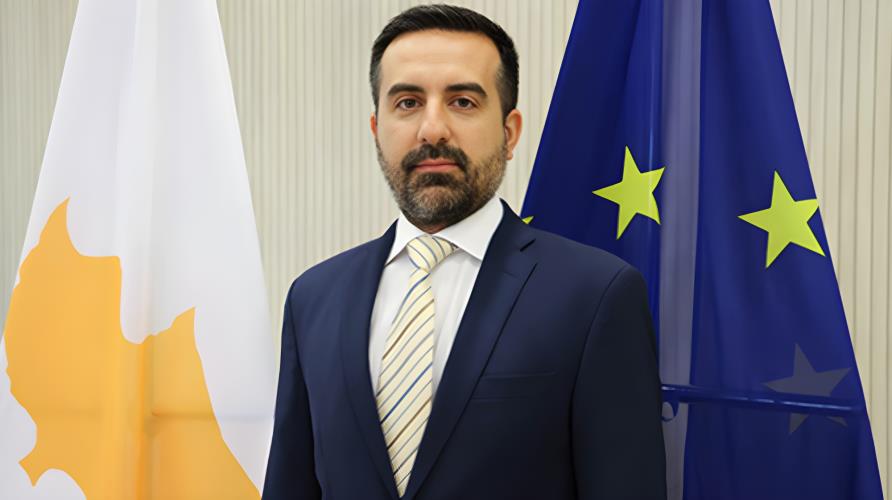Cyprus has been a sort of ‘workshop’ of international law, Deputy Minister of Migration and International Protection, Dr Nicholas A. Ioannides, has said.
Ioannides, pictured above, was addressing a seminar entitled 'Challenges for Cyprus and International Law: A conversation with Professor Sir Malcolm Evans'. The seminar, organised by the Cyprus Bar Association (CBA), took place in Nicosia on 7 February.
‘’Unfortunately, Cyprus has been a sort of ‘workshop’ of international law owing to an array of reasons’’, Ioannides pointed out, among other things. The reasons, as he said, are the Turkish occupation of part of Cyprus ‘’and its multiple repercussions, including violations of international humanitarian law, international criminal law and human rights’’, ‘’the presence of the UK Sovereign Base Areas and the UN Peacekeeping Force in Cyprus’’, and ‘’maritime delimitation, offshore activities and tension in the marine domain.’’
‘’Whether we are dealing with issues of territorial integrity, human rights, or the intricate web of bilateral and multilateral relations, the solutions we seek will often be found through public international law,’’ he stressed.
‘’Nevertheless, we should bear in mind that international law is not a panacea. It is our responsibility to familiarise ourselves with these rules, to apply them properly, and to ensure that they serve not only our own national interests but also contribute to a global order predicated on peace and fairness,’’ he went on to say.
In his address, CBA President, Michalis Vorkas, said that ‘’international law in itself can neither protect states, especially small ones, or remedy on its own, an illegal situation in the absence of an enforcement mechanism.’’ He pointed out that ‘’it was international law though, amongst others, that acted as a shield against the illegality of the Turkish invasion and the nonrecognition of the puppet state set up in the occupied areas of the Republic of Cyprus.’’
‘’It is international law and the commitment of the vast majority of the international community which have, at least, not legitimised the wrongdoings of Turkey,’’ he added, underlining that ‘’the Turkish occupation cannot, and should not, be legitimised due to the passage of time.’’
On his part, Sir Malcolm Evans noted that ‘’there are plenty of disputes between states concerning the exercise of territorial jurisdiction – the world is awash with them – but it is also increasingly clear that the resolution of such disputes has to be the result of an international legal process if it is to have legitimacy and to be ‘recognised’ by the system of law: what international law gives, only international law can take.’’
‘’Has it (international law) done enough? Does it provide a clear path to a remedy? Does it right wrongs? Possibly not to the extent we might like, but it is now beginning to do that too,’’ Evans pointed out, adding that international law is contributing to the resolution of longstanding conflicts in the contemporary world.
‘’It is not letting them ‘go away’ – and it is increasingly providing of the means through which they can be addressed. But it is still a long way from being able to impose a solution,’’ he concluded.
(Source: CNA)









